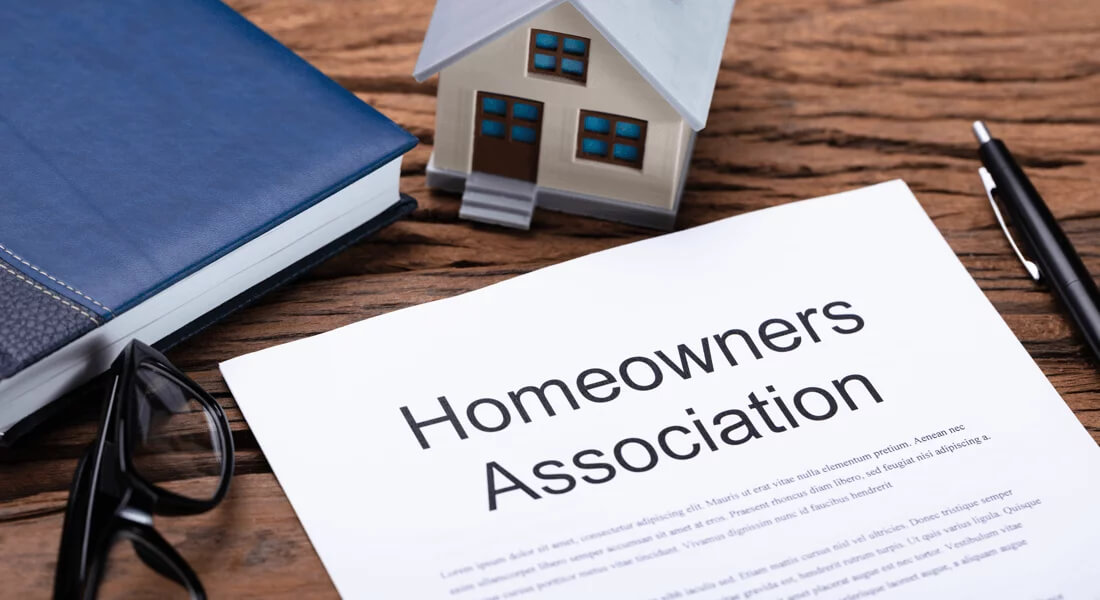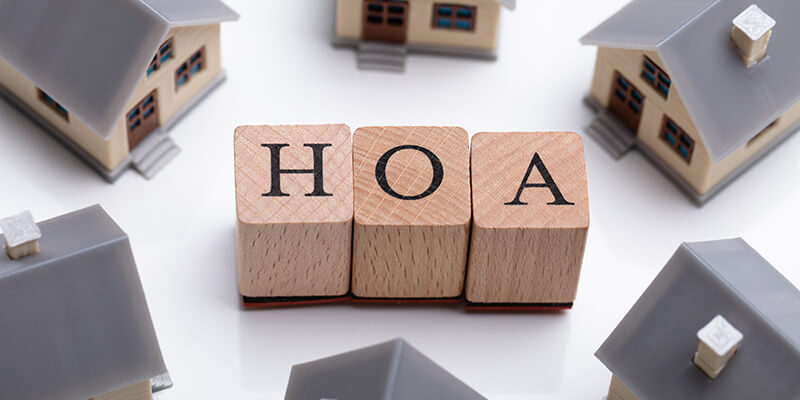Most planned communities in Canada have HOAs or, more formally, homeowner associations. An HOA is an organisation responsible for managing the community, usually elected by the residents. Aspects like garden maintenance, snow removal, and other everyday services are direct responsibilities of the association. A proactive home owner association thus enforces necessary regulations and maintains a high standard of living in the community. Although much has been said about HOAs, a lot remains unexplored. This comprehensive blog discusses their pros, cons, functioning and more. As you make your next property purchase, find the top qualities to look for in a homeowners association Canada before making a final call.
Functioning of HomeOwners Association Canada
HOAs are seen as the governing body of a residential community. Typically, it is established by the developer and further managed by a board of directors elected by the homeowners. The elected members work together to ensure the due enforcement of guidelines to maintain harmony in the community. These associations regularly collect funds for community events, festive decorations, renovations, and other services.
The most important elements of an HOA’s functioning are bylaws, rules, and regulations. HOA bylaws outline the association’s structure, positions, responsibilities, and other aspects. Rules and regulations, on the other hand, highlight the code of conduct for the residents. Homeowners associations in Canada are typically associated with condominiums. However, different housing types, like townhouses and apartments, also have active home owner associations.
How Much Does HOAs Cost?
Ah, there’s money involved! Communities with homeowners association Canada charge a period fee, usually collected every month. This amount funds the association’s daily activities and emergency reserves. Fees for an HOA differ from one community to another. Assessing the monthly costs of an association can help pragmatise the budgeting process.
Key tip: Assess an association’s financial statements while making a final call on its community. Pay attention to its debts, surpluses, and reserves to gauge its financial health and management prowess.
Rules & Regulations of a HomeOwners Association Canada

Aspects like pet policies, noise limitations, home modification and others are governed by the rules and regulations enforced by the HOA. Paying close attention to these guidelines can help gauge the community’s overall character, understand its functioning and decide if it aligns with the buyer’s personal values.
Common HOAs Rules & Regulations
Rules and regulations implemented by homeowner associations are subject to revisions. These vary with each HOA and are often updated based on the community’s feedback. Take a look at some of the common rules set by home owner associations in Canada:
|
Rules |
Aspects Covered |
|
Landscaping |
Mowing, gardening, weeding, etc. |
|
Home Exterior |
Layouts, colour palette, trash removal, exterior storage, etc. |
|
Parking |
Number of vehicles, visitor parking, speed limits, etc. |
|
Pets |
Eligible pets, number of pets allowed, pet waste, etc. |
|
Fines |
Punishable offences, applicable penalties, fine collection process, etc. |
|
Others |
Insurance, noise, decorations, new installations, etc. |
Pros of Home Owner Association

The existence of a homeowners association does a lot of good for a community. Take a look at some of its top advantages below:
Easy Maintenance
An HOA is that it takes over the trivial and time-consuming everyday tasks. You can leave the hassles of land-mowing, shovelling, snow removal, plumbing, lift maintenance and trash collection to them.
Better Property Value
HOAs aim to maintain high curb appeal by carefully maintaining a community. The high safety and living standards they ensure ultimately translate to better market values.
Affordable Bills
Most HOAs manage essentials like gas and electricity. They ensure that these are regularly available and at budget-friendly prices.
Conflict Settlement
The likelihood of conflicts among residents is heavily reduced in communities with homeowners associations. These organisations act as mediators, resolve the issues and ensure a harmonious living environment.
Better Standard of Living
Homeowner association Canada provide high residential safety and foster a strong sense of community among the residents. Factors like regular availability of services ensure an overall high standard of living.
Cons of a Home Owners Association
Homeowners association Canada can also bring their own set of challenges. Take a look at some of the prominent cons of these organisations below:
HOA Fees
The financial aspect of these associations can be the trickiest. Every HOA charges a certain fee, which individual residents cannot easily negotiate. Further, reserve funds, penalties, and fines become additional costs for a resident.
Hindrance in Everyday Life
At times, prevailing rules and regulations can foster a sense of rigidity. With little room for personalisation, residents can feel restricted and unable to exercise their choices.
Exterior Policies
Homeowner associations in Canada are known to exercise strong control over exterior aspects. Stringent policies around exterior aspects like paints, palettes and others leave little room for customisation among the owners.
Poor Management
An HOA with poor management completely defeats the purpose. Landing up in a community with an inconsistent and unresponsive association to resident feedback can significantly deteriorate the quality of life.
Lack of Transparency
Some homeowner associations might withhold or miscommunicate the necessary details. This usually pertains to financial management. A lack of transparency can lead to distrust and discontent among the residents.
Tips for Buyers
All that we’ve learned shall now be put to use. Take a look at practical tips to follow before finalising a community with an HOA:
-
- Ask for CC&Rs: Homeowners associations create CC&Rs that outline the rules, guidelines, and limitations they enforce. When buying a property in an HOA-governed community, ask your realtor to access this document.
- Check Reserves: Pay attention to how an HOA treats the reserve. Is it sufficiently funded? What is the existing balance? Answers to these questions will communicate how emergency-ready the association actually is.
- Ask for Budgets: Homeowners associations make annual/multiyear financial plans. A homebuyer must enquire about an HOA’s budget to gauge their collected funds and allocation.
- HOA Fees: Every investor must ensure that the monthly or annual fee collected by their HOA aligns well with their pockets. This will be a recurring cost, and thus, it requires due attention.
- Homeowner’s Responsibilities: In addition to the association’s responsibilities, a buyer must also inquire about what the association expects from them. This will ensure greater harmony and transparent communication between the two entities.
Homeowner Associations and Rentals
HOAs often have specific rules and regulations regarding rental properties within the community. These can include restrictions on lease duration, number of rental units available, tenant eligibility and more. Furthermore, the main aim of an HOA’s rental guidelines is to maintain community safety and harmony. Homeowners looking to rent out their properties must verify these guidelines beforehand. Potential investors are also suggested to interact with existing tenants to gain insights into their experiences and evaluate the community’s rental potential.
Wrapping Up
Homeowners associations Canada have gained increasing importance as lives have become busier by the day. They ensure easy maintenance of services and overall accountability. HOAs come with their own set of advantages and disadvantages. When buying a property, make it a point to enquire about the HOA. Carefully explore its various aspects, ensure how they sit with you, and take it up from there!
You May Also Read :
|
Guide To Canada Mortgage Statement |
|
|
What is Early Mortgage Renewal |
|
|
All About Townhouse Down Payment |
|
|
Know About Refinancing Mortgage Canada |
|
|
Homeowner Radon Testing |
Frequently Asked Questions (FAQs)
Does one have to pay fees for a homeowners association in Canada?
Yes, residents are required to pay the applicable HOA fees. The amount collected is used for maintenance and community services.
Can I opt out of HOA?
In most cases, HOA membership is compulsory to own a home in a community with a homeowners association.
What are the benefits of homeowners associations?
Homeowners associations in Canada offer many advantages, such as better property values, reduced bills, and a high standard of living.



































